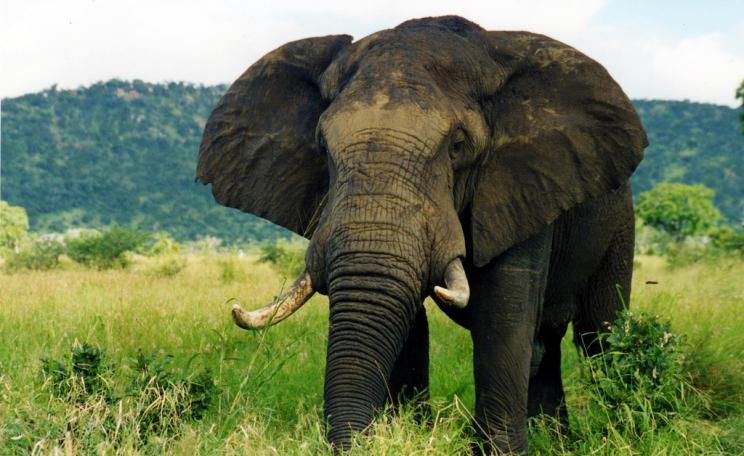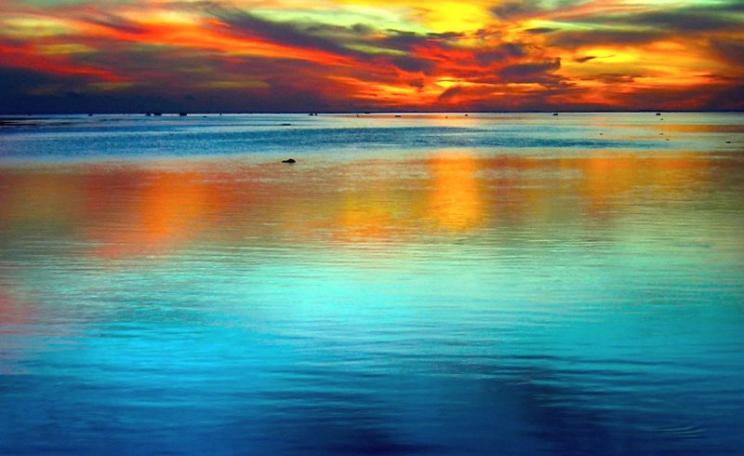In my mind I see a group of chickens in a cage disputing over a few seeds of grain, unaware that in a few hours they will all be killed.
The bells of mindfulness are sounding. All over the Earth, we are experiencing floods, droughts, and massive wildfires. Sea ice is melting in the Arctic and hurricanes and heat waves are killing thousands.
The forests are fast disappearing, the deserts are growing, species are becoming extinct every day, and yet we continue to consume, ignoring the ringing bells.
All of us know that our beautiful green planet is in danger. Our way of walking on the Earth has a great influence on animals and plants. Yet we act as if our daily lives have nothing to do with the condition of the world. We are like sleepwalkers, not knowing what we are doing or where we are heading.
Walking mindfully on Earth
Whether we can wake up or not depends on whether we can walk mindfully on our Mother Earth. The future of all life, including our own, depends on our mindful steps.
We have to hear the bells of mindfulness that are sounding all across our planet. We have to start learning how to live in a way that a future will be possible for our children and our grandchildren.
I have sat with the Buddha for a long time and consulted him about the issue of global warming, and the teaching of the Buddha is very clear.
If we continue to live as we have been living, consuming without a thought of the future, destroying our forests and emitting dangerous amounts of carbon dioxide, then devastating climate change is inevitable.
Much of our ecosystem will be destroyed. Sea levels will rise and coastal cities will be inundated, forcing hundreds of millions of refugees from their homes, creating wars and outbreaks of infectious disease.
We need a kind of collective awakening. There are among us men and women who are awakened, but it's not enough; most people are still sleeping. We have constructed a system we can't control. It imposes itself on us, and we become its slaves and victims.
For most of us who want to have a house, a car, a refrigerator, a television, and so on, we must sacrifice our time and our lives in exchange. We are constantly under the pressure of time. In former times, we could afford three hours to drink one cup of tea, enjoying the company of our friends in a serene and spiritual atmosphere.
We could organize a party to celebrate the blossoming of one orchid in our garden. But today we can no longer afford these things. We say that time is money. We have created a society in which the rich become richer and the poor become poorer, and in which we are so caught up in our own immediate problems that we cannot afford to be aware of what is going on with the rest of the human family or our planet Earth.
In my mind I see a group of chickens in a cage disputing over a few seeds of grain, unaware that in a few hours they will all be killed.
We need a new kind of dream
People in China, India, Vietnam, and other developing countries are still dreaming the 'American dream', as if that dream were the ultimate goal of mankind-everyone has to have a car, a bank account, a cell phone, a television set of their own.
In my mind I see a group of chickens in a cage disputing over a few seeds of grain, unaware that in a few hours they will all be killed.
In 25 years the population of China will be 1.5 billion people, and if each of them wants to drive their own car, China will need 99 million barrels of oil every day.
But world production today is only 84 million barrels per day. So the American dream is not possible for the people of China, India, or Vietnam. The American dream is no longer even possible for the Americans. We can't continue to live like this. It's not a sustainable economy.
We have to have another dream: the dream of brotherhood and sisterhood, of loving kindness and compassion. That dream is possible right here and now. We have the Dharma, we have the means, and we have enough wisdom to be able to live this dream.
Mindfulness is at the heart of awakening, of enlightenment. We practice breathing to be able to be here in the present moment so that we can recognize what is happening in us and around us. If what's happening inside us is despair, we have to recognize that and act right away. We may not want to confront that mental formation, but it's a reality, and we have to recognize it in order to transform it.
We don't have to sink into despair about global warming; we can act. If we just sign a petition and forget about it, it won't help much. Urgent action must be taken at the individual and the collective levels. We all have a great desire to be able to live in peace and to have environmental sustainability.
What most of us don't yet have are concrete ways of making our commitment to sustainable living a reality in our daily lives. We haven't organized ourselves. We can't only blame our governments and corporations for the chemicals that pollute our drinking water, for the violence in our neighborhoods, for the wars that destroy so many lives. It's time for each of us to wake up and take action in our own lives.
We witness violence, corruption, and destruction all around us. We all know that the laws we have in place aren't strong enough to control the superstition, cruelty, and abuses of power that we see daily. Only faith and determination can keep us from falling into deep despair.
Deciding the destiny of our planet
Buddhism is the strongest form of humanism we have. It can help us learn to live with responsibility, compassion, and loving kindness. Every Buddhist practitioner should be a protector of the environment.
We have the power to decide the destiny of our planet. If we awaken to our true situation, there will be a change in our collective consciousness.
We have to do something to wake people up. We have to help the Buddha to wake up the people who are living in a dream.
Forthcoming event: the themes set out in this article will be explored at the FutureNow conference on Saturday 8th November at the Trinity Centre, Trinity Road, Bristol, BS2 0NW.
Speakers include Peter Owen Jones, Satish Kumar, Chloe Goodchild, Tim Freke and Joe Hoare. For further information and bookings visit the FutureNow website or contact Joe Hoare on 07812 159 94.
This article is a Chapter excerpt from Spiritual Ecology: The Cry of the Earth, www.spiritualecology.org. Reprinted from The World We Have: A Buddhist Approach to Peace and Ecology (2008) by Thich Nhat Hanh with permission of Parallax Press, Berkeley, California, www.parallax.org.




